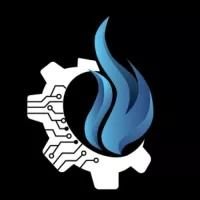Introduction: This article outlines the Data Scientist Intern role, covering responsibilities, technical tasks, and required qualifications. It explains how interns support data-driven decision-making through data collection, preprocessing, exploratory analysis, machine learning modeling, visualization, documentation, and cross-functional collaboration. The overview highlights the opportunity to work with real-world datasets and develop practical skills under the guidance of experienced data scientists.
Role Overview and Key Responsibilities
The Data Scientist Intern role encompasses end-to-end support for data-driven projects. Interns assist with collecting and preparing data, exploring and analyzing it to surface insights, supporting model development, and presenting results through visualizations and reports. Each responsibility contributes to reliable, actionable outcomes that inform stakeholders and product decisions.
- Data Collection & Preprocessing: Gather, clean, and preprocess both structured and unstructured data from various sources such as databases, APIs, and spreadsheets. This includes handling missing values, normalizing formats, and preparing datasets for analysis and modeling.
- Exploratory Data Analysis (EDA): Perform statistical analysis and visualization to uncover trends, patterns, and insights. EDA helps define features, detect anomalies, and guide model selection and evaluation strategies.
- Machine Learning & Modeling: Assist in building, testing, and optimizing machine learning models for predictive analytics. Tasks include feature engineering, model training and validation, and iterative refinement to improve performance.
- Data Visualization & Reporting: Create dashboards, charts, and reports using tools like Tableau, Power BI, Matplotlib, or Seaborn to communicate findings clearly and support decision-making.
- Collaboration: Work with cross-functional teams, including software engineers and product managers, to integrate analyses into products and projects and to align analytical work with business objectives.
- Documentation & Research: Document data processing workflows, methodologies, and key findings for reproducibility and future reference, ensuring work is transparent and maintainable.
- Continuous Learning: Stay updated with industry trends, tools, and techniques to enhance analytical skills and apply new approaches within the internship scope.
Qualifications, Skills, and Growth Opportunities
The internship is suited for individuals pursuing or recently completing degrees in Data Science, Computer Science, Statistics, Mathematics, or related fields. It emphasizes technical proficiency, analytical thinking, and communication, while offering practical growth by contributing to meaningful projects under mentorship.
- Educational background: Currently pursuing or recently completed a relevant degree (Data Science, Computer Science, Statistics, Mathematics, or related).
- Programming & libraries: Proficiency in Python or R for data analysis and machine learning, and familiarity with data manipulation libraries such as Pandas, NumPy, and SciPy.
- Machine learning frameworks: Basic knowledge of frameworks like scikit-learn, TensorFlow, or PyTorch to support model building and experimentation.
- Data access: Experience with SQL for querying databases and extracting data needed for analyses and models.
- Analytical skills: Strong analytical ability grounded in statistics and probability to interpret results and guide modeling choices.
- Visualization & communication: Ability to create clear visualizations and interpret insights effectively, coupled with strong communication and problem-solving skills.
- Mindset: Enthusiasm to learn and apply new technologies in a fast-paced environment, leveraging mentorship to develop practical machine learning and visualization expertise.
Conclusion: The Data Scientist Intern role offers structured exposure to data collection, preprocessing, EDA, modeling, visualization, collaboration, and documentation. Candidates with a relevant academic background, Python/R skills, familiarity with data and ML libraries, SQL experience, and strong analytical and communication abilities will thrive. This internship provides hands-on experience with real-world datasets and mentorship from experienced data scientists to build practical, transferable skills.



